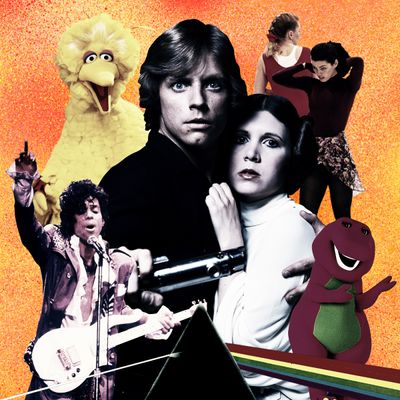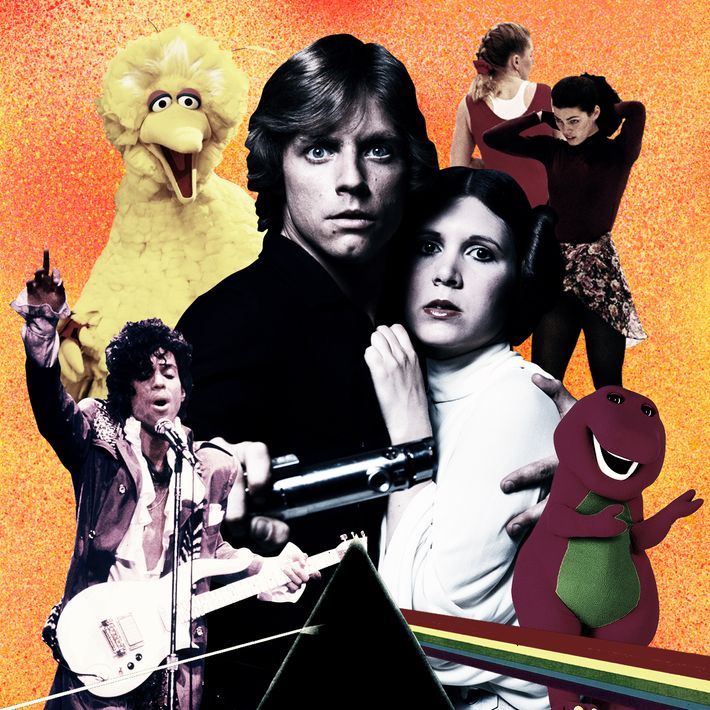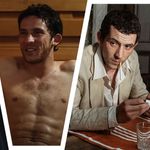

I remember the first time I heard Pink Floyd. Not a song. Not a concert. But the actual words Pink Floyd. Two glorious words. And my first introduction to pop music.
Growing up in the Children of God cult, I was not allowed to listen to music that was not produced by the group. We kids knew well the story of Jeremy Spencer, world-famous slide guitarist of Fleetwood Mac, who one night at a concert met some eccentric people backstage and left his band to join the Children of God. He never looked back. The Children of God attracted many young, talented musicians from the ’60s. Music, songs, and dancing were abundant and common. But any music produced outside of the group was forbidden and shunned.
I was sitting in the back seat of a Chevrolet Cavalier with my two sisters when Pink Floyd came up. I was 15 years old and had started public high school. We had just made our first “systemite” friend, Chris Huffman. (Father David, our leader, had taught us that anything outside of the cult was evil, people were “systemites,” and for me, this world had become intriguing and mysterious.)
“Do you guys like Pink Floyd?” Chris Huffman said as he lit up an unfamiliar green substance in a small metal pipe. I had never seen drugs before, nor listened to pop music. Now I was sitting in the back seat of my new friend’s car as he lit up a substance that had to be heroin (all drugs are heroin when you’ve grown up in a cult). What was I becoming? Heroin and Pink Floyd — I was doomed. I was fast becoming a systemite. I was going to have to play it cool, and playing it cool is not something you learn growing up in a cult.
“No, thank you,” I said to the heroin. The car filled up with a billow of smoke as I racked my brain for an answer to the question: Do I like Pink Floyd? The Dark Side of the Moon blasted from the old stereo system. I was going to have to lie. Yes, I loved Pink Floyd. I was going to have to lie many times when questioned about my knowledge of pop culture. It may well have been a contact high, but listening to systemite music for the first time was a milestone in my emergence into the world I was cut off from.
“Pink Floyd,” I repeated to myself, and tucked the words away in the section of my brain reserved for categorizing “What Is Cool.”
Learning to identify “What Is Cool” started a few years earlier, when Father David died and my family was relocated to a house in the South Side of Chicago. That’s when I started reading — books, magazines — and watching TV for the first time. I can count on two hands how many movies I’ve seen growing up. We had a recommended list with all the movies we were allowed to watch; The Ten Commandments and Jesus of Nazareth were top picks, along with 101 Dalmatians and Annie.
Riverside Library in Cook County now became a safe haven where I could escape into the world that I had been sheltered from. The TV upstairs was our window to the world. We became enthralled with shows like The Love Boat, Full House, and Entertainment Tonight. We watched fast-paced action films starring Will Smith and Martin Lawrence. I saw my first scary movie, The Silence of the Lambs. Like any normal teenage girl, I developed celebrity crushes, top-model envy, and was intrigued by the idea of status and fame. Rich people were a novelty growing up, and now here they were separated only by a thin TV screen and some grey static. The only two celebrities I knew of growing up were Michael Jackson and Madonna. Father David had taught us that they were evil and worldly, vessels of sin and corruption. Their music was of the Devil, and I was never to listen or I would burn in hell for all eternity.
The images that struck me most from this new avalanche of media were the stories I saw on the news. I had never watched the news growing up, and when my family arrived in Chicago from Thailand, the ’94 Winter Olympics were on. The Nancy Kerrigan–and–Tonya Harding scandal was making headline news. I watched the clip over and over of Nancy Kerrigan wailing in pain as she held her knee. I couldn’t help but also notice the beauty of the sport. When the skaters glided across the ice, they looked happy and free. They moved effortlessly and wore costumes fit for ballerinas. They were beautiful. I watched as 16-year-old Oksana Baiul collapsed in tears when it was announced that she had won gold. I wanted to rejoice with her. I wanted to be her. I couldn’t help thinking, Sports can’t be evil, even though Father David had led us to believe they were.
The next year, Timothy McVeigh bombed the Alfred P. Murrah Federal Building in Oklahoma, and O.J. Simpson was acquitted of murder charges in the trial of his ex-wife Nicole Brown Simpson’s stabbing. These stories took center stage on our family’s TV. I was beginning to experience firsthand the enormous impact media can have on the human psyche. I began to have questions and doubts. I began to inquire about morality. The world was becoming a complex myriad of grey — no longer black and white, no longer a simple story of good and evil. I was beginning to wonder where would I fit in. I saw power in how humans communicated through television, books, and magazines. Advertisements became a full-time obsession. I became fascinated with how words were used to manipulate and sell products that I had never heard of.
In the years since, I’ve had countless instances where I’d hear of a cool band, TV show, or movie from my childhood years that I have no reference for — but I’ve also had an incredibly rich experience with culture. The first album I listened to in its entirety was Björk’s Homogenic. A best friend from high school wanted me to have it, and I listened to it over and over again. It was an almost spiritual experience. Now my tastes are eclectic and broad, ranging from country, folk, and soul (Alison Krauss and Union Station, Brandi Carlile, Alabama Shakes) to pop (Emeli Sande, Sam Smith, FKA Twigs) to hip-hop (the Roots, Outkast) and experimental trip-hop. Classic rock (Simon and Garfunkel; the Beatles; Crosby, Stills and Nash) makes me nostalgic for the quasi-counterculture ’60s environment I grew up in. However, I have absolutely no references to music from the ’80s (sorry, Prince). That decade will always remain as enigmatic and obscure as my complicated childhood.
When time allows, I binge unapologetically on shallow reality-TV shows, my guilty pleasure. But some things never go away: People are still shocked that I’ve never seen Star Wars, have no recollection of Barney, memories of Sesame Street, or Saturday-morning cartoons. I still have a long list of “make-up movies” that I hope one day will fill the gap for all the things growing up in a cult didn’t teach me. And when the world gets too loud, I put on some headphones and dissolve into a corner of The Dark Side of the Moon.
Read Flor Edwards’s earlier piece for Vulture on what Unbreakable Kimmy Schmidt gets right about growing up in a cult.




